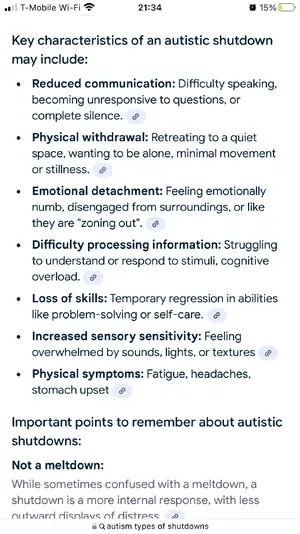I've never passed out from a shutdown. But it is frequent that I cannot physically move my tongue or hands to speak. I don't know if that qualifies as "physical."
Is why I was rejected for PIP in the past as I was asked "If you are in a shutdown, could you write a list out to send someone else to a shop to buy things for you? I said I would be on the floor unable to speak or move or see or hear, so no".
The lady said "Then you are not eligable for PIP".
But yes. What you describe is a physical element of a shutdown. (I get my whole body shutting down so though I do notice the mental side of it, it is the physical side of it that is way more noticable to me!
It is like using a computer with Windows 95, and a virus comes along... And ones computer senses it and says "Windows is shutting down" while you are in the middle of writing something, and one is speedingly trying to finish the task or save it before it shuts down! Physical shutdowns feel like this but with my body shutting down its systems one at a time until I end up on the floor!
Now I know thr triggers, I can usually avoid having full out shutdowns BUT I do go into partial shutdowns which always take place before a full out shutdown occurs, so to me they are warning signs so if I try to ignore them and not remove myself in time to a place without the triggers, I know what will happen!!!
